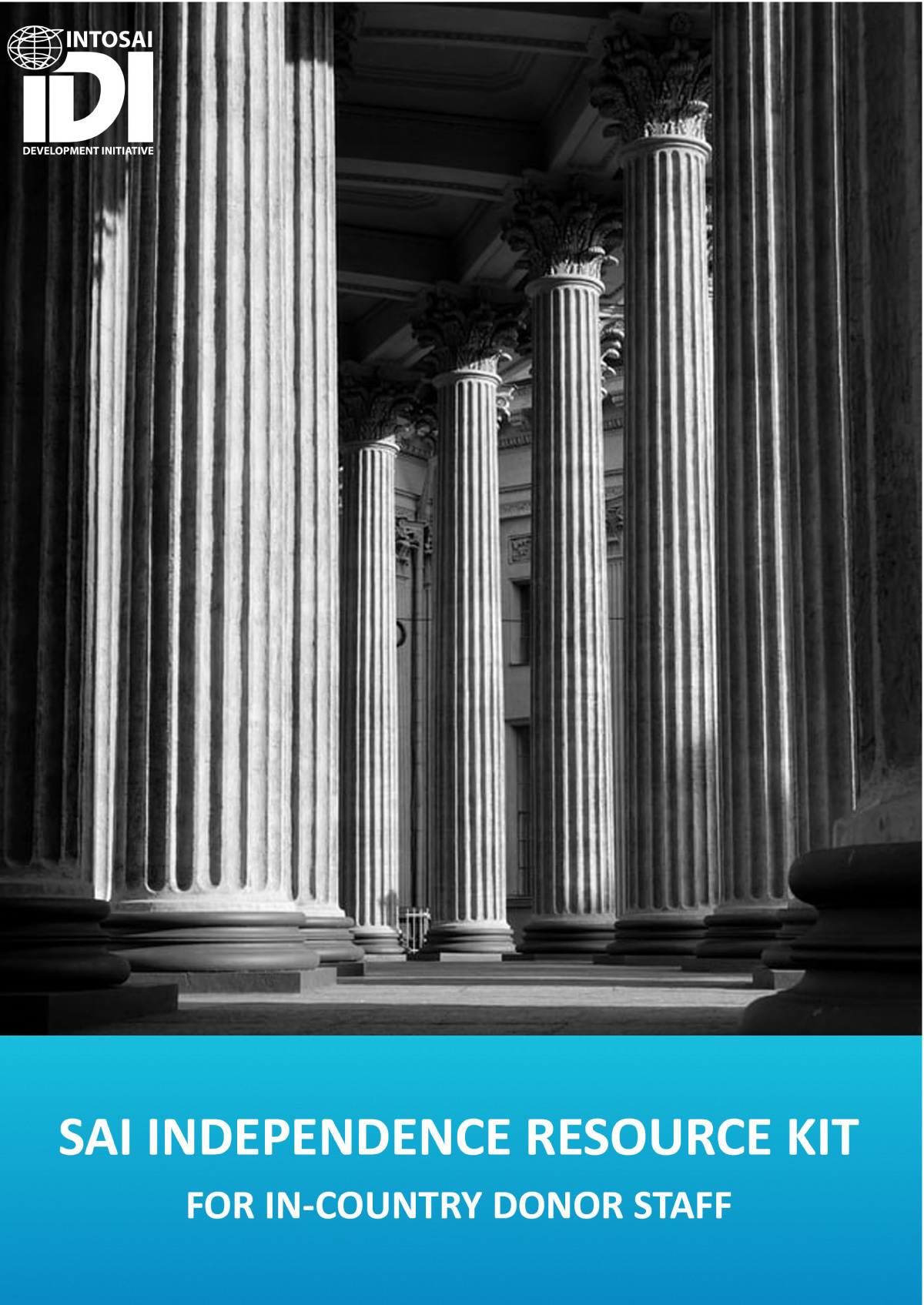Background to the SAI Independence Donor Resource Kit
Independence is a critical prerequisite for any Supreme Audit Institution (SAI) to carry out its mandate effectively and add value to citizens. The independence of a SAI from the executive bodies it audits is fundamental to its role in public accountability and in building trust between the state and society. The essential role of SAI independence has been clearly established by INTOSAI in the Lima and Mexico Declarations, and confirmed in United Nations resolutions 66/209 and 69/228. These resolutions call on member states to promote the efficiency, accountability, effectiveness and transparency of public administration by strengthening SAIs, and specifically SAI independence.
Unfortunately, evidence shows that levels of financial and operational independence are low and declining in many parts of the world. SAI Heads face reduced protection from unjust removal; SAIs face increased executive interference in their budgets; SAI audit reports are not followed up; and SAIs face restrictions in publishing the results of their audits.1
Given these realities, SAI independence has been made a priority in the Strategic Plans of both the International Organization of Supreme Audit Institutions (INTOSAI) and the INTOSAI Development Initiative (IDI) and is high on the agenda of donors. The first strategic priority under Goal 1 of the INTOSAI-Donor Cooperation (IDC) Strategy 2020-30 is to increase and sustain SAI Independence. Over the last two years, the IDC held several Strategic Discussions on SAI Independence which recognised the benefit of working together to create powerful and nimble coalitions to support SAI independence, and that this is a crucial strategic topic for the IDC moving forward. The discussions also pointed to the need for INTOSAI and the Donor community to actively build capacity of donor staff at the country level to enable them to engage effectively on SAI independence, as it was noted “that development staff engaged in this area may not always be experts on PFM and SAIs, hence support to raising awareness and developing capacity was essential”.2
It is against that backdrop that the SAI Independence Donor Resource Kit has been developed.
Objective and Content of the SAI Independence Donor Resource Kit
The SAI Independence Donor Resource Kit is a quick reference guide for donor staff that will help you better understand the challenges SAIs face in obtaining and safeguarding independence, and will assist you to effectively advocate for SAI independence at the global, regional and incountry levels.
The Donor Resource Kit is divided into three sections: Advocacy, Tools, and Resources.
The Advocacy section provides the necessary background to understand the role of SAIs in government oversight and accountability, and the importance of independence in ensuring SAIs can effectively fill their role. This section highlights the Eight Principles of SAI Independence, which have been established by the INTOSAI in the Mexico Declaration.
The Tools section highlights several tools which can help you better understand the concept of SAI independence, and also help you assess and respond to threats to SAI independence. The SAI Performance Measurement Framework measures, among other things, a SAI’s independence, and is a useful tool for benchmarking developments. The SAI Independence Rapid Advocacy Mechanism (SIRAM) is a tool you can use to report a potential threat to SAI independence. All reports to SIRAM are assessed within 30 days by the IDI SAI Independence team. Finally, Regional Workshops on SAI-Donor Engagements provide an opportunity for the local donor community and the SAI to meet face-to-face and identify potential synergies in their common efforts to promote accountability and good governance.
The Resources section features information about websites, reports and surveys which can help you contextualize the topic of SAI independence in your local environment. Of particular note is the SAI Independence Resource Centre, which provides a comprehensive overview of the Eight Principles, a Knowledge Centre of relevant government, technical, and academic publications, and an interactive version of this Resource Kit
1 Global SAI Stocktaking report 2017, pg.2
2 “INTOSAI-Donor Cooperation: Strategic Discussions on SAI Independence” from the 2019 IDSC Meeting in Tokyo, Japan.

